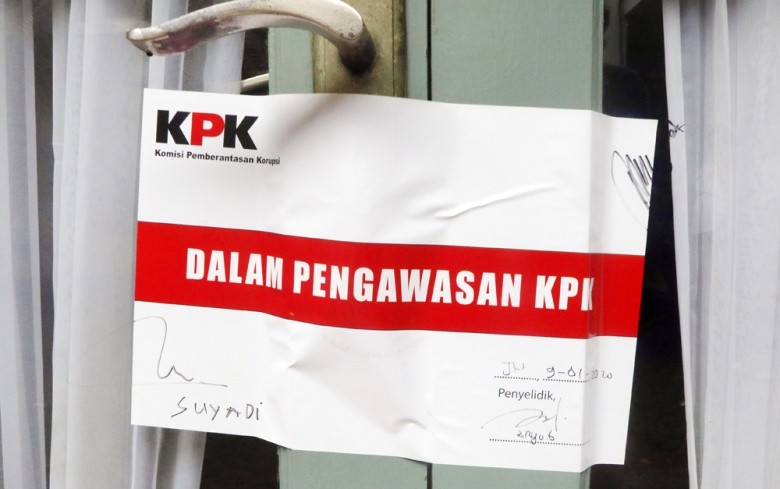Popular Reads
Top Results
Can't find what you're looking for?
View all search resultsPopular Reads
Top Results
Can't find what you're looking for?
View all search resultsBPS index shows increasing tolerance of petty corruption
Change text size
Gift Premium Articles
to Anyone
P
ollsters and experts say that Indonesians are growing more permissive toward petty corruption and fear that this attitude could serve as motivation for committing an act of major corruption.
The trend is reflected in the latest corruption perception index from Statistics Indonesia (BPS), an annual index that describes Indonesians' level of tolerance toward practices that could lead to petty corruption.
This year's index has given a score of 3.68, a decline from 3.8 on last year’s index. The index uses a scale of zero to 5, with lower scores indicating high public tolerance for petty corruption, like charging illicit fees for public services. Higher scores indicate low public tolerance for petty corruption.
The 2020 index interviewed a randomized sample of 1,200 respondents aged 18 and above from March 2 to May 17.
BPS head Suhariyanto attributed this year's lower score to several factors. These included 14.21 percent of respondents who said they would tolerate family members taking the belongings of other family members without permission, more than double the 5.15 percent of respondents who responded similarly in last year's index.
Meanwhile, 32.74 percent of respondents said it was permissible for people to receive money, gifts and other facilities from legislative or regional electoral candidates, compared to 20.89 percent of respondents in the 2019 index.
“Not to mention that more respondents also said it was 'normal' to pay extra money to police and public officials or middlemen to expedite the process for obtaining a driver's license, vehicle registration certificate, [personal] identity card or family identity card,” Suhariyanto said on Monday.
The BPS found that public tolerance for petty corruption had increased despite the decline in opportunities for committing misdemeanors: The same 1,200 respondents scored 3.91 in a separate BPS index on "corruption experience", up slightly from 3.65 last year.
Also using a scale of zero to 5, higher scores on the corruption experience index indicate better access to public services, without paying illicit fees or bribes for the services.
BPS attributed the higher score to a 83.21 percent of respondents saying that they had never given cash or gifts to bribe public service officers, compared to 81.6 percent of respondents last year.
"We see a stark contrast [between the two indexes]. People have gained better access to public services without having to bribe officers, while at the same time, [more respondents] perceived petty corruption as normal behavior," Suhariyanto said.
He also noted the rising trend among the public of "normalizing" petty corruption as indicated by the BPS corruption perception indexes from the past three years.
“We believe that committing misdemeanors could lead people to commit major corruption. Therefore, the government and law enforcement should educate the public about the risks of petty corruption,” he added.
A separate 2018 public opinion poll by the Indonesian Survey Institute (LSI) confirms the findings of the BPS index. The LSI survey showed that 85 percent of 2,000 respondents said they had given money to public service officers either to expedite the process or to reward the officers for their services.
Sociologist Nia Elvina said that the rising trend in tolerance toward petty corruption was because people kept hearing how bribes and other gifts could help them complete routine state requirements.
“But what people consider to be common perception isn’t always the right thing to do. Any form of corruption, whether minor or major corruption, can cause losses for others," Nia said. “Therefore, society needs, at the very least, a role model to show [them] that their lives will [still] be fine [without] committing petty corruption."
Wawan Suyatmiko of Transparency International Indonesia warned that people might be more inclined to become involved in major corruption if tolerance for minor corruption persisted. He added that stern measures against graft offenders would discourage the public's permissive stance toward petty corruption.
Meanwhile, Corruption Eradication Commission (KPK) spokesperson Ipi Maryati said that the disappointing results of the BPS index had prompted the antigraft body to run its family-based corruption prevention program regularly. The program, which was launched in 2016 to instill an anticorruption culture, focused on strengthening parental roles in teaching their children about integrity, she said.










